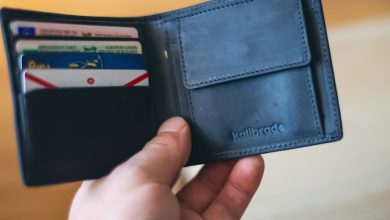Hot vs. Cold Wallets: Which is Better for Your Assets?

- Understanding the difference between hot and cold wallets
- Pros and cons of using hot wallets for storing assets
- The benefits of using cold wallets to secure your investments
- How to choose the right wallet for your cryptocurrency assets
- Security measures to consider when using hot wallets
- Tips for safely storing your assets in a cold wallet
Understanding the difference between hot and cold wallets
When it comes to cryptocurrency wallets, it’s important to understand the difference between hot and cold wallets. Hot wallets refer to wallets that are connected to the internet, making them more vulnerable to hacking and cyber attacks. On the other hand, cold wallets are offline wallets that are not connected to the internet, providing an extra layer of security for your assets.
Pros and cons of using hot wallets for storing assets
When it comes to storing your assets, hot wallets can offer some benefits, but they also come with their own set of drawbacks. Here are some pros and cons to consider:
- Pros:
- Convenience: Hot wallets are easily accessible and allow for quick transactions, making them ideal for frequent trading or spending.
- Integration: Many hot wallets are compatible with various platforms and exchanges, making it easier to manage your assets in one place.
- Cost: Hot wallets are often free to use or have minimal fees associated with them, making them a cost-effective option for storing assets.
- Accessibility: Hot wallets can be accessed from any device with an internet connection, giving you the flexibility to manage your assets on the go.
- Cons:
- Security Risks: Hot wallets are connected to the internet, making them more vulnerable to hacking or phishing attacks compared to cold wallets.
- Third-Party Risk: Some hot wallets are custodial, meaning you are relying on a third party to secure your assets, which can introduce an additional layer of risk.
- Regulatory Concerns: Depending on where you live, using a hot wallet may not comply with local regulations, putting your assets at risk of seizure or legal action.
- Limited Storage: Hot wallets are typically designed for smaller amounts of assets for everyday use, so they may not be suitable for long-term storage of large amounts.
Ultimately, the decision to use a hot wallet for storing your assets will depend on your individual needs and risk tolerance. It’s important to weigh the pros and cons carefully and consider diversifying your storage solutions to mitigate risk.
The benefits of using cold wallets to secure your investments
Using cold wallets to secure your investments has several benefits that make them an attractive option for many investors. Cold wallets, also known as hardware wallets, are offline devices that store your cryptocurrency keys securely away from potential cyber threats. This added layer of security significantly reduces the risk of unauthorized access to your assets.
One of the main advantages of cold wallets is their immunity to online hacking attempts. Since they are not connected to the internet, hackers cannot access your funds remotely. This provides peace of mind to investors who are concerned about the security of their assets in the volatile world of cryptocurrency.
Furthermore, cold wallets are not susceptible to malware or phishing attacks, which are common risks associated with hot wallets. By keeping your keys offline, you can protect your investments from these types of cyber threats that could compromise your funds.
In addition, cold wallets are highly durable and reliable. Unlike hot wallets, which are software-based and can be vulnerable to system failures, hardware wallets are physical devices that are less likely to malfunction. This ensures that your keys and assets are safe and accessible whenever you need them.
Overall, using cold wallets to secure your investments is a smart choice for investors looking to protect their assets from online threats. With their offline storage, immunity to hacking attempts, and durability, hardware wallets offer a secure and reliable way to safeguard your cryptocurrency holdings.
How to choose the right wallet for your cryptocurrency assets
When it comes to choosing the right wallet for your cryptocurrency assets, there are a few key factors to consider. First, you’ll want to think about the level of security you require. Hot wallets are connected to the internet, making them more vulnerable to hacking, while cold wallets are offline and therefore less susceptible to cyber attacks.
Another important consideration is the convenience of access to your funds. Hot wallets are typically easier to use for day-to-day transactions, as they are more readily accessible. On the other hand, cold wallets are better suited for long-term storage, as they offer greater security but may be less convenient for frequent trading.
It’s also worth thinking about the type of cryptocurrencies you plan to store in your wallet. Some wallets are designed to support a wide range of digital assets, while others may only be compatible with specific coins. Make sure to choose a wallet that meets your needs in this regard.
Additionally, you’ll want to look into the reputation and track record of the wallet provider. Opt for a well-established and reputable company to minimize the risk of losing your assets due to poor security practices or other issues.
Ultimately, the decision between a hot and cold wallet will depend on your individual preferences and requirements. Consider your priorities in terms of security, convenience, and coin support to select the wallet that is the best fit for your cryptocurrency assets.
Security measures to consider when using hot wallets
When using hot wallets, it is crucial to implement proper security measures to safeguard your assets from potential risks. Here are some key considerations to keep in mind:
- Enable two-factor authentication (2FA) to add an extra layer of security to your wallet.
- Regularly update your wallet software to ensure you have the latest security patches and features.
- Use strong and unique passwords for your wallet to prevent unauthorized access.
- Avoid accessing your hot wallet on public Wi-Fi networks to minimize the risk of hacking.
- Consider using a dedicated device for your hot wallet to reduce the chances of malware infection.
By following these security measures, you can better protect your assets stored in a hot wallet and minimize the risk of unauthorized access or theft.
Tips for safely storing your assets in a cold wallet
To safely store your assets in a cold wallet, follow these tips:
- Choose a reputable cold wallet provider to ensure the security of your assets. It’s essential to research and select a trusted company with a track record of safeguarding customers’ funds.
- Keep your private keys offline and away from potential hackers. By storing them on a physical device not connected to the internet, you reduce the risk of unauthorized access.
- Make multiple copies of your recovery phrase and store them in separate secure locations. This way, if one is lost or destroyed, you can still access your assets.
- Regularly update your cold wallet software to protect against any potential vulnerabilities. Software updates often include security patches to keep your assets safe.
- Consider using a multisignature cold wallet for an added layer of security. With multisig, multiple private keys are required to authorize transactions, making it harder for hackers to steal your assets.
By following these tips, you can ensure that your assets are safely stored in a cold wallet, providing you with peace of mind and security for your investments.



